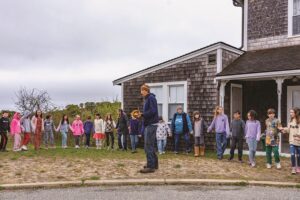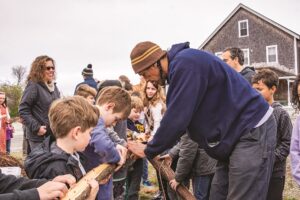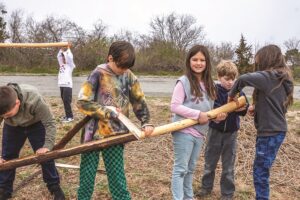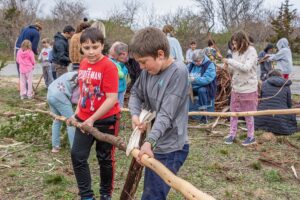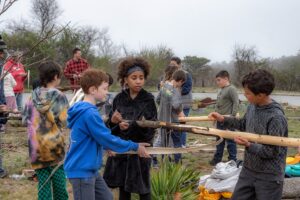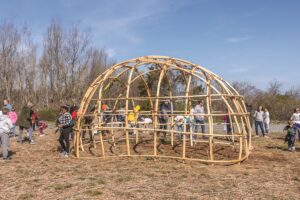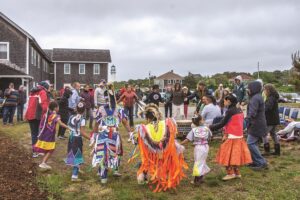TRURO — The wind blew ferociously on June 3, providing a fitting backdrop for the celebration held at the Highland House Museum that day. Annawon Weeden had just put the finishing touches on a wetu — a traditional Wampanoag structure built to withstand Cape Cod’s elements — that he had constructed on the museum grounds.
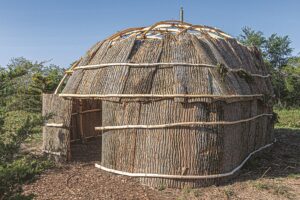
Visitors gathered inside to take shelter from the elements and observe details of the dome-shaped structure’s wood, rope, and bark construction. “It is a beautiful work of art and craft,” said Helen McNeil-Ashton, vice president of the Truro Historical Society, as she opened the ceremonies, noting that the way it was built symbolizes “the connections of family and community.”
Earlier in the day, Cape Cod National Seashore Supt. Brian Carlstrom joined state Rep. Sarah Peake and members of the Mashpee Wampanoag Tribe to offer remarks about the dedication of the wetu. “Having the wetu built on this site recognizes the continued stewardship we share with the Wampanoag people,” said Carlstrom.
Seashore historian Bill Burke locked pinkies with Carol Wynne, a dancer from the Wampanoag Nation Singers and Dancers, and took a turn at the mosquito dance.
Weeden, a member of the Mashpee Wampanoag tribe, involved students and teachers from the Truro Central School in the project, teaching them some of the steps involved in building a wetu. Cedar saplings the students peeled were woven together in an arched grid to secure the structure’s frame. Weeden invited families and community members to tie the pieces of wood together with bark and rope.
The structure was then covered with large sheaths of bark to keep out the elements. The exterior resembles the rough surface of a tree, whereas the interior is smooth and polished. A hole in the center of the wetu allows smoke from a central firepit to escape.
“They’re good homes,” said Hartman Deetz, a wampum craftsman and member of the Mashpee Wampanoag tribe. “There’s a small core of people in the tribe who have a knowledge of how to build them,” he said. Building a wetu requires an engagement with the land, he noted: “You can’t go buy cedar saplings at Home Depot.”
The wetu can be visited free during Highland House Museum hours: Monday, Wednesday, Thursday, and Friday 10 a.m. to 4:30 p.m.; Tuesdays until 2 p.m., Saturdays until 1 p.m. The museum is closed on Sundays.
